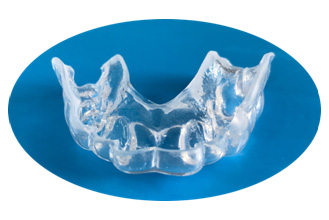Bruxism

The 21st–27th October 2019 marks Bruxism Awareness week.
Bruxism is the clinical term for the grinding of teeth and clenching of the jaw. It can occur when you are awake or asleep but the latter is the most common, affecting almost 80% of bruxers.
You may not know that you grind your teeth while you are asleep. It may be a bed partner that first notices the grinding sounds and noises.
The main signs & symptoms of Bruxism are:
- Teeth grinding – often diagnosed by your sleep partner
- Headaches – particularly in the morning
- Earache
- Temporomandibular joint (TMJ) discomfort
- Aching shoulders and neck pain
- Tooth pain (aching) or sensitive teeth
- Abnormal tooth wear and/or fracturing of teeth
Unfortunately, most of these symptoms, i.e. migraines, earache, and a stiff neck/jaw do not overtly suggest that the clenching and grinding of teeth may be the cause – leaving bruxism one of the most under diagnosed conditions in the UK.
So what causes Bruxism?
The most common cause is stress and anxiety. This accounts for approximately 70% of cases. There are also links with sleep disorders such as sleep apnoea, medications such as anti-psychotic and anti depressant drugs and life style choices such as alcohol, smoking and the use of drugs.
If you have any of the symptoms mentioned above let your dentist know. They can help to work out if you have bruxism. This may include looking for any wear and damage to your teeth, checking the muscles in and around your jaw and the function of the jaw joints, which are just in front of your ears.
How is Bruxism Treated?
If you are grinding your teeth at night, a biteguard can be made to be worn while you sleep. This is similar to a mouthguard and protects your teeth and jaw muscles from the pressure of grinding and clenching.
If your bruxism is caused by stress and anxiety then treatments such as relaxation techniques, yoga or counselling are often recommended.
Cutting back on alcohol and giving up smoking and recreational drugs is also advised.

If you are suffering from any of the symptoms above and suspect that bruxism may be the cause please book an appointment with your dentist.
Go Back


